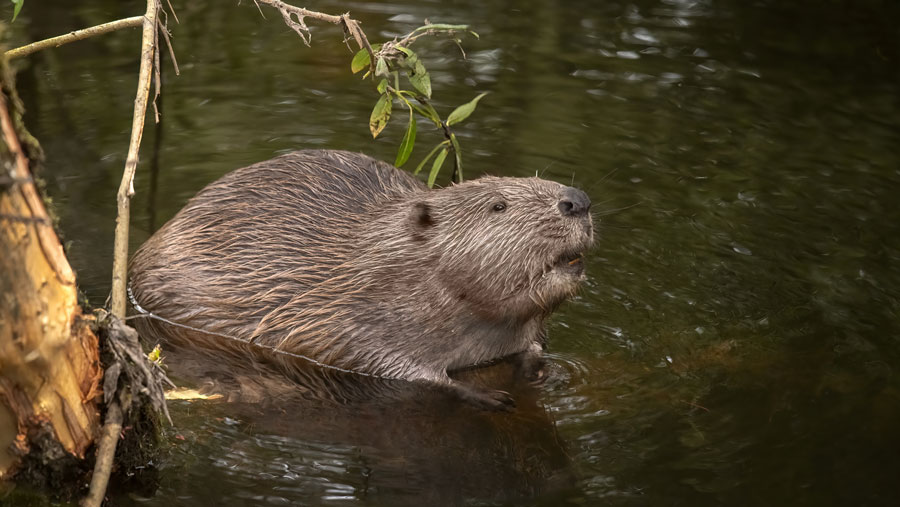Guidance on wild release of beavers in England sparks debate
 © Adobe Stock
© Adobe Stock The NFU has expressed disappointment that government guidance on reintroducing beavers into England was released without prior consultation.
Laws governing the release of Eurasian beavers were introduced in July, with guidance on management measures for the species published at the end of last week (see below).
Defra guidance and when you need a licence
Defra’s guidance sets out a range of licensed and unlicensed activities for beaver management. Licences are needed to:
- modify or remove a burrow or lodge
- modify or remove a dam that is associated with a burrow or lodge
- remove a food cache where it is joined to a lodge
- cause disturbance that affects a beaver’s ability to survive or breed
- transport and release a beaver
- kill, injure or capture a beaver
- possess a dead beaver or its body parts
- sell or exchange, or offer for sale or exchange, a beaver
Unlicensed actions under certain conditions
- Dams that are causing damage can be removed if they are not associated with a lodge or burrow
- Inactive burrows can be removed, but photo and video evidence must be supplied
- Beaver channels can be filled in if it is not associated with a burrow or lodge and is likely to cause erosion to the riverbank.
Defra also stresses a range of options that could be taken to control beaver populations and reduce damage. These include:
- Providing space for beavers 10-20m from the watercourses
- Installing fences to protect crops
- Fitting young trees with wire mesh guards
This latest move is being viewed as a further significant step towards a widespread release of beaver populations in England.
But the gathering momentum behind the reintroduction has sparked fears among some farmers over potential damage to trees, crops, watercourses and habitats.
See also: Can beavers and farms work together on flood control?
An NFU spokesman said: “Despite the government publishing more information on the management and licensing of beavers in England, the NFU is disappointed that this has been done without wider consultation with farmers and landowners.
“We would like to see the government further engage with farmers and landowners before it finalises the national approach to the wild release of beavers.
“Farmers are continuing to work around the clock to produce the nation’s food and will be rightly asking government for adequate tools and support to manage a species that could impact their business and on food production.”
But rewilding protagonists, who dismiss claims of damage, have been equally riled by the release of the guidance.
Licensed culling provision
Wildlife groups are concerned the guidance makes provision for the licensed destruction of beavers and their lodges under certain circumstances. Previously, it was thought beavers would have to be trapped and rehomed with no provision for culling.
But under the guidance, Natural England has three licences it can issue for beaver management, which includes the capture and re-release of beavers.
However, it has also stated that if these actions do not work, farmers and landowners can apply to the government agency to use “lethal control”, as a last resort.
James Wallace of the water quality pressure group River Action and former chief executive of the Beaver Trust said the animals should be seen as a help to agriculture.
He told The Guardian newspaper: “Killing beavers should be the last thing on our minds as we encourage people to welcome them back.
“Beavers can help breathe life back into our degraded and polluted land, without reducing food production.
“Farmers should be offered support to live alongside beavers, including education, practical solutions like protecting trees or crops, or dam removal and translocation if issues persist.”
After 400 years of extinction, the Wildlife Trusts is leading the reintroduction of beavers in counties across the UK – Derbyshire, Cheshire and Dorset – following successful trials in the River Otter catchment, Devon, and in Knapdale, Scotland.
Further information
Natural England should be contacted with queries beaver activity.
Phone 0300 060 3900
Email enquiries@naturalengland.org.uk
The full management document is available on the Defra website.
